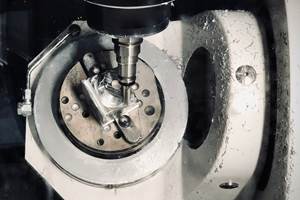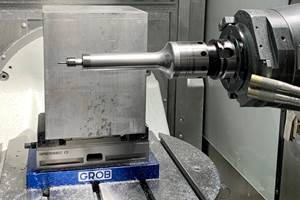Large Travel Size Increases Shop Productivity
By purchasing a Feeler bridge mill with a large travel size, Elite Tool increased productivity by reducing setups and doing more work in-house.
Share




Not every shop is set up to handle big parts, though some make do with the equipment they have on hand. In these cases, it is often necessary to move large parts multiple times to complete all the features. While this method can, in fact, produce the desired part, it also increases the chance for error. To eliminate the need for multiple handlings, Elite Tool purchased a bridge mill with sufficient travel size to accommodate large parts in one setup. As a result, the shop has increased its efficiency and accuracy while realizing cost savings.
The 20-year-old, full-service machining and fabrication job shop offers CNC milling and turning, waterjet, manual machining and assembly services at its 30,000-square-foot facility in Moscow Mills, Missouri. The 40-employee shop manufactures a variety of parts for the aerospace and defense industries, as well as for commercial customers, including construction, bio-medical and racecar manufacturers.
Serving such a diverse customer base requires satisfying an equally diverse range of customer needs. For instance, the shop might move from machining an aerospace component requiring tolerances as tight at ±0.001 inch to a less-stringent construction industry weldment with tolerances ranging to ±0.015 inch, says Frank Roth, co-owner. Adding another layer of complexity is the fact that the shop’s largest table measured 20 by 50 inches. “If we had a part that was 80 inches long, we had to set it up twice,” Mr. Roth explains. The company would machine half the part, pick it up and machine the other half on the same machine. Even then, there was some work that the company just could not handle. “We had to subcontract the machining and finishing work on many of our weldments because our own machines simply were not big enough to accommodate their size,” says Kenan Wilkinson, co-owner.
To solve these problems, Elite turned to McClain Tool & Technology (Maryland Heights, Missouri), a distributor of Methods Machine Tools Inc. (Sudbury, Massachusetts). McClain recommended a Feeler FV-series double-column bridge mill for its accuracy, rigidity and size, among other features. The 50-taper, 6,000-rpm machine features a FANUC 18i-MB (A) control with an 85-inch X axis and 71-inch Y-axis linear guideway. The 79-by-67-inch table can accommodate 15,000-lb loads. Now, Elite is able to machine most of its plate work, which averages 40 by 50 inches, in-house in one setup. By limiting the number of setups, the company has increased the accuracy of its parts and reduced setup time by as much as 50 percent, Mr. Wilkinson says.
The Feeler’s stepped Y-axis beam, 54,000-lb (27-ton) weight, and heavily ribbed cast iron components have provided the rigidity to take more aggressive cuts. This rigidity also helps ensure excellent surface finish and improves overall part quality. “You can tell from the looks,” Mr. Roth says. “The mismatch is less and repeatability from one part to the next part is more consistent.” The shop now machines 90 percent of its custom weldments in-house instead of subcontracting out tens of thousands of dollars of work, Mr. Wilkinson says.
Performing more work in-house makes quoting jobs much easier, Mr. Roth says. The shop no longer has to find and wait for another shop to give its quote. “Managing your own shop is easier than managing vendors because you don’t have control over them,” he says. This has led to more accurate quotes and cut delivery time by at least a week, he continues. For example, Elite has increased its deliveries from 5 to 10 weldments per month to 15 to 20. As a result of these advantages, Mr. Roth says the Feeler machine has enabled the shop to take on more work from its customers than it could in the past.
Related Content
How to Successfully Adopt Five-Axis Machining
While there are many changes to adopt when moving to five-axis, they all compliment the overall goal of better parts through less operations.
Read MoreThe Future of High Feed Milling in Modern Manufacturing
Achieve higher metal removal rates and enhanced predictability with ISCAR’s advanced high-feed milling tools — optimized for today’s competitive global market.
Read MoreHigh RPM Spindles: 5 Advantages for 5-axis CNC Machines
Explore five crucial ways equipping 5-axis CNC machines with Air Turbine Spindles® can achieve the speeds necessary to overcome manufacturing challenges.
Read MoreOrthopedic Event Discusses Manufacturing Strategies
At the seminar, representatives from multiple companies discussed strategies for making orthopedic devices accurately and efficiently.
Read MoreRead Next
5 Rules of Thumb for Buying CNC Machine Tools
Use these tips to carefully plan your machine tool purchases and to avoid regretting your decision later.
Read MoreSetting Up the Building Blocks for a Digital Factory
Woodward Inc. spent over a year developing an API to connect machines to its digital factory. Caron Engineering’s MiConnect has cut most of this process while also granting the shop greater access to machine information.
Read MoreRegistration Now Open for the Precision Machining Technology Show (PMTS) 2025
The precision machining industry’s premier event returns to Cleveland, OH, April 1-3.
Read More
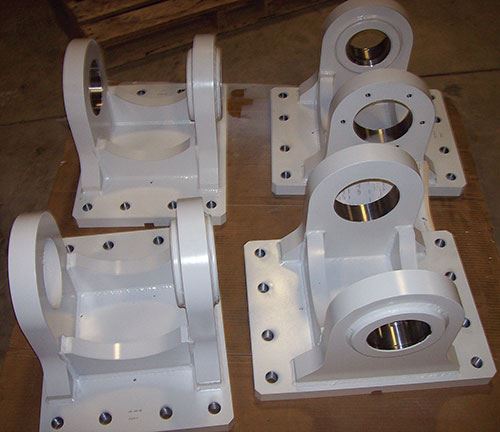
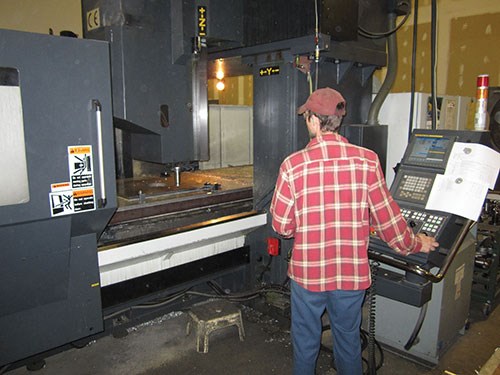
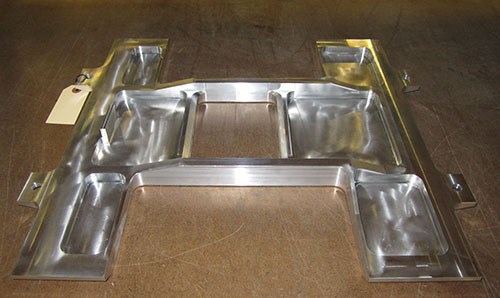
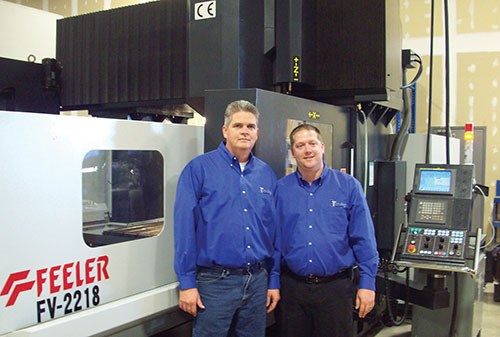




















.jpg;maxWidth=300;quality=90)






